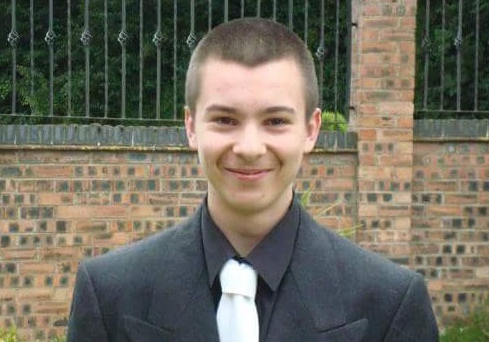An inquest hearing began today (Wednesday) to establish whether a massive overdose of painkilling drug administered to a burns victim was the cause of his death.
University Hospital Birmingham NHS Trust has admitted that Ben Steele, of Holbeach Clough, was given too much ketamine – said to be seven times the recommended dose – but denies that was the cause of his death. It claims that Ben died as a result of his injuries.
The 20-year-old (pictured) was being treated in the city’s Queen Elizabeth Hospital after suffering third-degree burns in a welding incident at his home in March 2012.
The trust has admitted that it failed in its duty of care towards Ben. There was “excessive administration of ketamine”, “a failure to seek senior assistance” and a “failure to have appropriate monitoring in place”.
A medical negligence claim was settled out of court.
Now, after a long wait for answers, his mum Tracey Steele-Kinder is hoping to finally find out whether the overdose was to blame.
She said: “Ben died more than four years ago and the wait for answers has been excruciating.
“I accept that no matter what the outcome of the inquest, it won’t bring Ben back. But if mistakes are found to have been made and if lessons could be learned from his death, then by accepting those errors; by learning those lessons, other people could be saved.”
Ben’s family say he was an extremely clever young man. He used to strip computers and televisions of their components and sell them on the internet for profit.
The accident occurred while Ben was working in his garden shed. A spark from his welding equipment caused an explosion which ripped through the workshop.
He was rushed by ambulance to A&E at Pilgrim Hospital, Boston, before being transferred to the burns unit in Birmingham. He had suffered 58 per cent burns, including third-degree burns to his face and head and first-degree burns to upper limbs.
His family were told Ben had a 50 per cent chance of survival, but after multiple surgeries and skin grafts his prognosis improved to 70 per cent.
Ben required daily dressing changes for his burns, and each time he was given an intravenous dose of ketamine as analgesia during the procedure. It was during one of these procedures that he received an amount of ketamine seven times the recommended dose.
Adam Wright, an expert medical negligence lawyer at Irwin Mitchell, representing Tracey, said: “Ben suffered horrific injuries as a result of his accident and his family had to come to terms with the possibility that he wouldn’t survive.
“To then learn that he received an overdose of ketamine whilst he was being treated in hospital has left Tracey with so many questions, most important of which is what ultimately led to his death; his overdose or his injuries?”
The inquest at Stamford Town Hall is expected to finish on Thursday.







